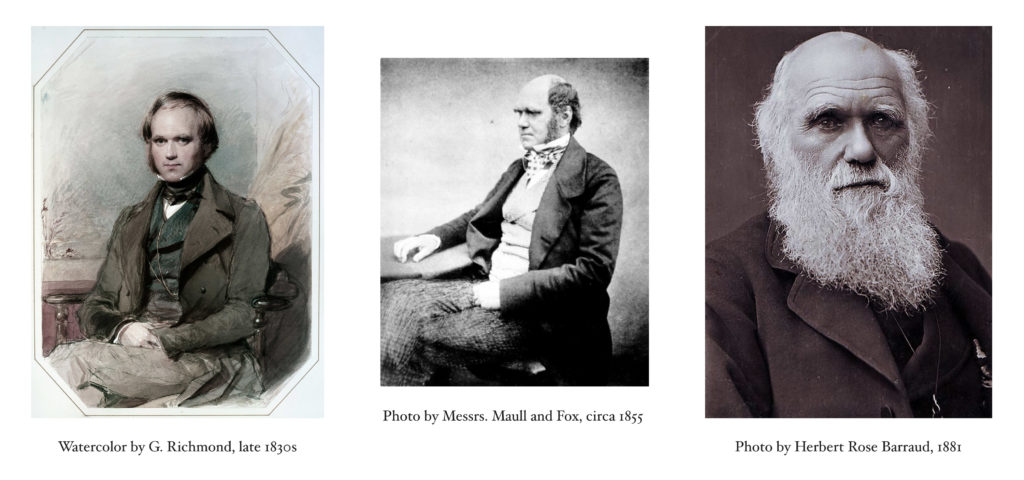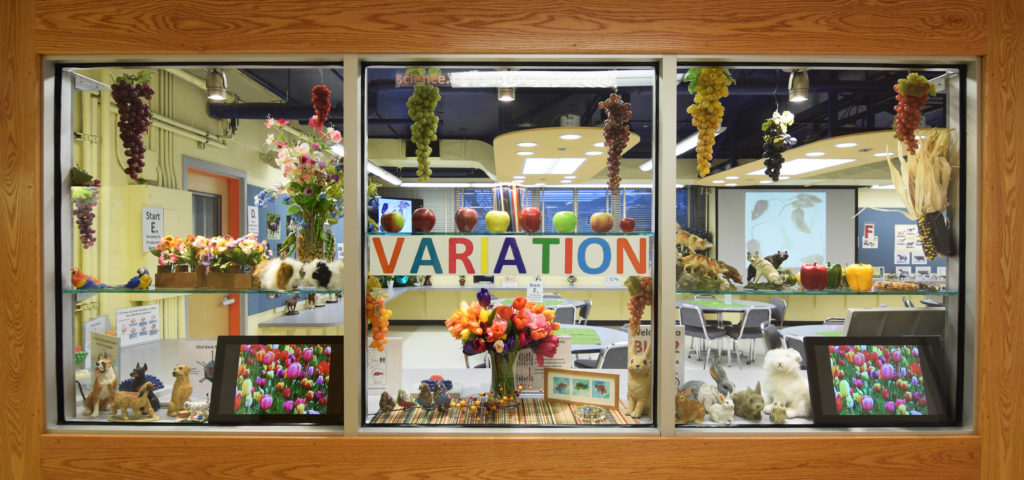
Natural Selection Darwin's Theory Explaining Evolution


Natural Selection Objectives
-
Describe Darwin’s voyage and research that led to description and explanation of evolution.
-
Explain how science is only one way of knowing about the world.
-
Provide the assumptions of the theory of natural selection, and examples of natural selection in action shaping species over time.
In the 19th century the physical and life sciences were taught together as one field of study called “natural history.” People who studied natural history at university were called “naturalists.” Charles Darwin was a 19th century naturalist and explorer who clarified a description of evolution and explained how variation, inheritance, and selection could change species over time.

Even though photography had not been invented when Charles Darwin was born in 1809, later photographs have become widely distributed and can be found in any biology textbook.
In this section, you will see why Charles Darwin was not only a significant scientist, but also remains one of the most recognized people to this day.
Find a comfortable place to work
This is one of science’s most captivating stories
Videos with the yellow box icon shown on the left are delineating and clarifying complex concepts, skills, or connections between topics.
Watch this video, continuing to take notes for this guide’s media piece and to use on the quiz.
You can select the closed captioning “cc” option if you would like to see the text.
Scientists and other science-related professionals are real people that face the same issues and concerns that other people face. Life experiences impact the way we think about our world and our place within it, and that was the case for Darwin as well.
So why is the name “Darwin” and icons related to Darwin now a flashpoint for controversy in the United States?
Darwin wrote about the origins of humans and indicated that similar mechanisms that led to changes in other species also could have led to changes in our own species. This conflicts with other views of origins of humans.
In Darwin’s lifetime and in the 150 years since, his name and face have become associated with deep-seated concerns over where humans fit with other species.

Does this feel familiar?
How do we reconcile beliefs that are not dependent on observable phenomena with a theory that drives modern biology?
One way to think about this is that there are multiple ways of viewing the world.
People make decisions based on information from multiple disciplines.
For example, we are touching on many controversial issues in this course, including:
-
cloning of animals
-
use of animals in research
-
conservation of endangered animal species
Multiple fields weigh into how we understand and think about these issues.

Multiple Ways of Knowing
When you make your decisions about complex issues, you will likely draw on understandings from multiple fields of knowledge.

Understanding Perspectives
This is why universities require baccalaureate core courses! So you understand different ways of looking at issues. Not just developing your own views, but understanding other people’s perspectives as well.
It is not necessary to agree with science’s contributions.
Some of the things we’ll cover in this course may make your skin crawl a bit, like using genetic technologies to create entirely new organisms.
But as an educated individual, it is important to understand science’s contributions.
Charles Darwin’s contribution was providing a detailed description of species changing over time AND an explanation for that change; the theory of natural selection.
Natural Selection
During his years writing Origins, Darwin bred pigeons, selecting parents with desired traits and predicting that those traits would appear in the offspring. This is now often referred to “artificial selection” for traits by humans in contrast to “natural selection” when nature impacts which traits become more frequent in a species.
We’ll cover artificial selection in the next guide; here we will take a closer look at natural selection with a “VISTA” model.

Take a moment and review your notes. Think of an explanation, in your own words, for what the letters V-I-S-T- and-A stand for. Hint: this would be an example of a possible quiz question!
Check your understanding with the next video.

Explain why you need to have genetic variation for Darwin’s Theory of Natural Selection, and evolution as we know it, to actually work.
Check your notes to be sure you have recorded enough information from the last two videos to answer this question.
Darwin’s theory of natural selection profoundly changed the way people look at the world, to think that every species living on Earth today descended from a common ancestral species, far back in time.
There is solace in this interconnectivity and also a loss of individuality, the idea that humans are not completely distinct and separate from other species. We experience this tension to this day.
In the next section we meet the animals and see how the branching connectedness of species is depicted with tree diagrams.

Check your knowledge. Can you:
-
describe Darwin’s voyage and research that led to description and explanation of evolution?
-
explain how science is only one way of knowing about the world?
-
provide the assumptions of the theory of natural selection, and examples of natural selection in action shaping species over time?



